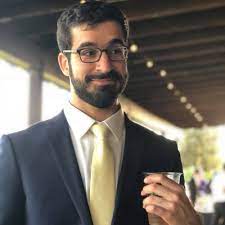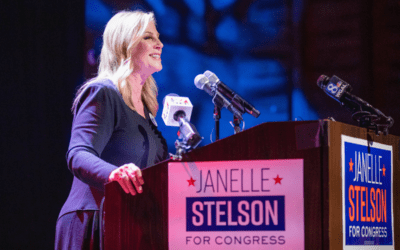
Image via Shutterstock
School closures have impacted at least 124,000 public and private schools in the U.S., affecting more than 55 million students.
President Donald Trump on Monday said that states should “seriously consider” reopening their public schools before the end of the academic year, even though dozens have already said it would be unsafe for students to return until the summer or fall.
Trump made the comments in a call with governors where he discussed how to reopen their economies.
“Some of you might start thinking about school openings, because a lot of people are wanting to have the school openings. It’s not a big subject, young children have done very well in this disaster that we’ve all gone through,” Trump said, adding that states “can seriously consider” reopening schools.
None of the governors on the call responded to the suggestion, according to a recording obtained by The Associated Press.
Trump’s comments come as the Centers for Disease Control and Prevention works to finalize guidelines for reopening the economy. In its guidelines for schools, the agency suggested a three-phase reopening process for schools in communities with “low levels of COVID-19 spread and those with confidence that the incidence of infection is genuinely low.”
RELATED: How the Coronavirus Crisis Has Upended the Lives of Teachers, Parents, and Students
These guidelines include putting students’ desks six feet apart, having students eat lunch in their classrooms instead of the cafeteria, foregoing field trips and school assemblies, closing playgrounds, and creating isolation areas for any student who develops symptoms. School officials would also be advised to shut down the building if anyone diagnosed with COVID-19 was confirmed to have been inside.
Reopening schools is considered critical to boosting economic activity, as many parents would struggle to return to work without a safe place to send their kids. But Trump’s suggestion alarmed education officials who said opening schools for only a handful of weeks before the school year ends poses a huge risk and no real reward.
“Are they going to reopen for two weeks? Three weeks?” Daniel Domenech, executive director of the American Association of School Administrators, told the AP. “It’s not the right thing to do. Particularly when we’re involving the safety and welfare of our students.”
Trump acknowledged that the school year was coming to an end, but still suggested that some states were actively considering reopening classrooms.
“I think you’ll see a lot of schools open up even if it’s for a very short period of time,” he said Monday. “In terms of what this vicious virus goes after, young people seem to do very well. Young people seem to do very well so I know that there are some governors that aren’t necessarily ready to open up states, but they may be ready to open up the school systems.”
While coronavirus cases have largely been mild among American children, at least three have died of COVID-19 in the U.S., according to the CDC, and many schools have students with preexisting medical conditions that could make them vulnerable to the virus, according to Francisco Negrón, chief legal officer for the National School Boards Association.
RELATED: Michigan’s First Child Killed by COVID-19 Was 5-Year-Old Daughter of First Responders
“The foremost concern for schools is going to be safety of their students and safety of their employees,” Negrón told the AP.
Reopening schools may also be premature because doctors are still learning about the coronavirus’ impact on children. On Sunday, the UK’s Pediatric Intensive Care Society (PICS) shared a National Health Service alert warning that a small but growing number of children are becoming sick with a rare syndrome that could be linked to the virus.
“The cases have in common overlapping features of toxic shock syndrome and atypical Kawasaki disease with blood parameters consistent with severe COVID-19 in children,” the group wrote.
Kawasaki disease, a rare childhood illness, causes inflammation in blood vessels throughout the body. Symptoms include fever, rashes, and swollen lymph nodes. Only a handful of children in critical condition have been admitted to intensive care units with the virus, according to PICS, and only a “small number of children nationally” presented with the symptoms associated with Kawasaki, but the group still expressed concern about the trend.
“There is a growing concern that a [COVID-19] related inflammatory syndrome is emerging in children in the UK, or that there may be another, as yet unidentified, infectious pathogen associated with these cases,” PICS said.
Kwasaki disease is rare and the link between Kawasaki and COVID-19, if there is one, remains unknown, but Professor Simon Kenny, NHS national clinical director for children and young people, said that these sorts of warnings are important.
“Thankfully Kawasaki-like diseases are very rare, as currently are serious complications in children related to COVID-19, but it is important that clinicians are made aware of any potential emerging links so that they are able to give children and young people the right care fast,” Kenny told CNN on Monday.
Whether this warning proves prescient or impacts American states’ plans for school reopenings has yet to be determined. Schools across the nation began shutting their doors in March and since then, 43 states, four U.S. territories, and the District of Columbia have ordered or recommended school building closures for the rest of the academic year, according to a tally by Education Week. These closures have impacted at least 124,000 public and private schools in the U.S., affecting more than 55 million students.
Only a few states have publicly discussed opening before the fall, such as Montana, which says school districts can resume classroom instruction on May 7.
The American Federation of Teachers, one of the nation’s largest teachers unions, has emphasized the need for better testing and tracking of the virus and the importance of schools receiving personal protective equipment before students can return to the classroom safely.
“It’s good the president understands that reopening society and the economy hinges on successfully and safely reopening schools,” said AFT president Randi Weingarten. “But the question should not be whether we open schools, but how we do it safely. COVID-19 is a terrible virus that has already taken too many lives, and, in the absence of a vaccine, there is no magic wand or magic elixir as the president would have us believe.”
RELATED: ‘Woefully Behind’: The Real Reason the Economy Is Still Shut Down
Education advocates are worried that if schools resume normal operations too quickly and see a rash of cases or cause the virus to spread, they could see legal action. If schools reopen too quickly and end up spreading the coronavirus, schools could be held legally liable, Negron said.
Another issue is that some of the CDC’s draft guidelines, such as the six-feet-apart rule could prove virtually impossible to implement, according to Domenech, of the school administrators association. He added that many schools have such large student bodies that they would violate states’ suggested limits on large gatherings.
Despite these concerns, Domenech told the AP that schools are considering ways to minimize student interactions, including proposals to bring half the students into school for the morning, and the other half for the afternoon, with students spending the rest of each day taking classes online at home.
“Everybody wants to have the kids back,” he said. “We understand the impact that this has on the economy. You have working parents and they need their kids to be safe and in a school environment so they can go back to work. Sooner or later schools will have to reopen. The question is how.”
The Associated Press contributed to this report.

For Rep. Susan Wild, supporting PA families includes reproductive rights and much more
Rep. Susan Wild wants to be very clear with Pennsylvanians: Donald Trump is committed to taking away women’s reproductive freedom, but he is not...

School districts working with anti-LGBTQ groups can cost your kids’ schools millions
Parents across South Central Pennsylvania are worried about the potential financial impacts working with anti-LGBTQ groups may have on their school...

VIDEO: Trump distances himself from his anti-abortion views
Donald Trump appeared on WGAL on Tuesday and continued to distance himself from his anti-abortion views claiming that reproductive rights are now a...

VIDEO: Community pushback gets school board to rescind decision on denying gay actor’s visit
Cumberland Valley School Board offered a public apology and voted to reinstate Maulik Pancholy as a guest speaker a week after the board voted to...

VIDEO: Project 2025 brings nuclear armageddon back into vogue
Project 2025 is a titanic document, with plans ranging from cutting half of all government employees to targeting reproductive rights on a scale...





